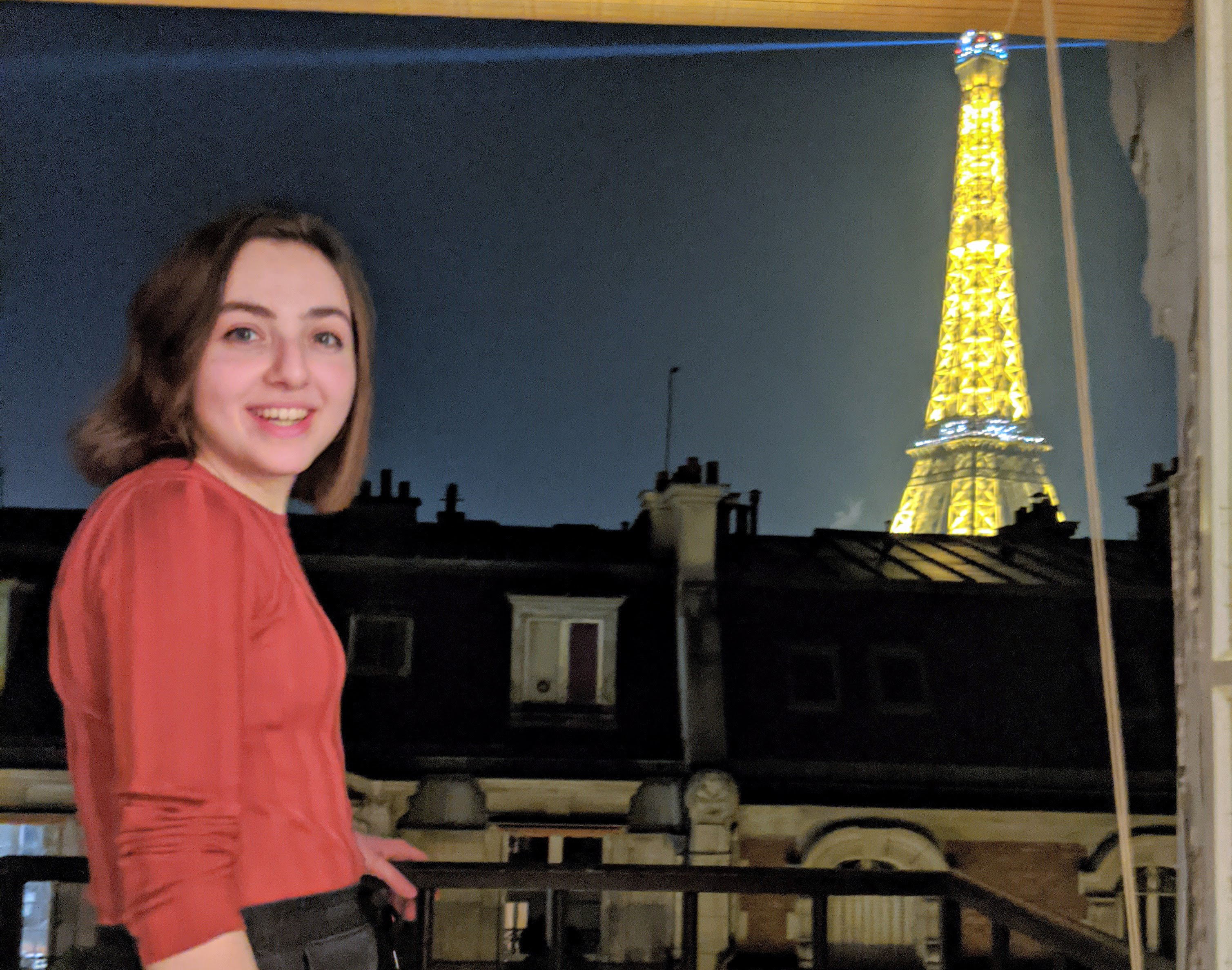Designing My Uncertainties
By: Julia Mitchell, Huntsman ’22

Bibliotheque Saint Genevieve, where Julia spends time studying
Julia Mitchell is one of the Semester Abroad Global Correspondents writing and sharing her experience abroad during the Spring 2020 semester. Follow along with the group of correspondents on our blog and look out for their student takeovers on the @pennabroad Instagram through the semester.
Semester Abroad
Institute of Political Studies in Paris (Sciences Po)
When students choose where they want to study abroad, they can either opt for a program organized by an American university like Penn Semester in Lyon or Columbia Reid Hall, or they can directly enroll in an international university. I chose the latter. After I was accepted to study at Sciences Po for the spring, I scheduled my visa appointment, selected my housing, bought transport passes, enrolled in courses, and took on life in a new country.
Why add on the extra work and stress of planning all these details independently? Because with the added responsibility comes added freedom. I get to choose my own adventures.
Going into the semester, I knew generally how I wanted to make the experience my own. I wanted as much language and cultural immersion as possible, so I found a host family through an agency. I wanted to meet French people as well as other exchange students, so I go to “after works.” (Which basically means hanging out with other students in cafes and bars across the city.)
As for the challenges of direct-enrollment, I opted to take all my classes in French, which that if I don’t concentrate the entire lecture, I won’t understand what’s going on. Most of my classmates are first and second-year undergrads who already know each other. There was a voluntary orientation program for exchange students, but it requires more than a few hours to assimilate to Sciences Po’s culture and French academic expectations for dissertations and exposés. Taking classes in a different country means learning a new set of rules (and no one likes rules more than the French.)
Outside of my academic workload, I seek out time and freedom for daily adventures. In Paris, culture is cheap for students, which allows for my constant consumption of movies and exhibitions. Afterward, I walk around the city scoping out the best Banh Mi, take pictures in parking lots for my photography class, or meet up with friends. For exercise, I explore running routes in Paris like the Bois du Bologne and the pathways along the Seine. Moreover, Paris comes with inevitable uncertainty that makes over-planning pointless. Two days after I arrived in the city, protesters blocked the entrance to the Louvre. Today, two of my classes were canceled because of student activists that blocked the main academic buildings. Now, the global uncertainty caused by Coronavirus could throw any plan out the window.
One of my biggest freedoms (and challenges) in this choose-your-own-adventure is solo travel. Growing up, my family never took me on crazy road trips or adventures to other countries. The closest I got to international travel was Disney World. Yet, within my first month abroad, I figured out how to buy train passes that make a weekend trip to visit my friend in Barcelona affordable. I had a week off from classes, so I hopped on a 7-hour train to Milan. (before infections exploded in the region.) To get back home, I took a night train from Venice to Paris and shared a train car with strangers speaking Italian, French, Punjabi, and Wolof. The next day, I found a cheap flight to Stockholm. From country-hopping through the Schengen Area, I learned how to keep myself safe and orient quickly in new environments. I also learned to haggle in Italian for a coat and that you should always remember to bring a towel and a padlock to hostels. Before these trips, I had always thought of travel through the lens of structured tourism – sleeping in hotels and staring at monuments from the top of double-decker buses. I didn’t realize how spontaneous, affordable, and exhilarating it could be.
When you directly enroll as an exchange student, you have to design spaces for yourself. No one makes them for you. When I couldn’t focus on campus, I got a library card at the Sorbonne. When train lines were shut down, I took the bus. When I don’t understand the meaning of a French expression or why half the city is on strike, I seek out answers. And when I need to recover from a food coma after dinner with my host family, I collapse.

The Semester Abroad (SA) program offers undergraduate students the opportunity to study in a new global community through extended study for a semester or year. Penn Abroad partners with top institutions around the globe and collaborates with Penn’s undergraduate schools to offer programs for students across academic disciplines.